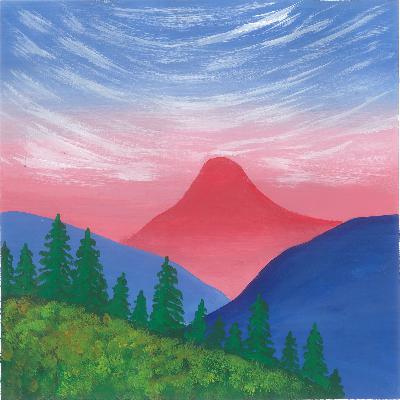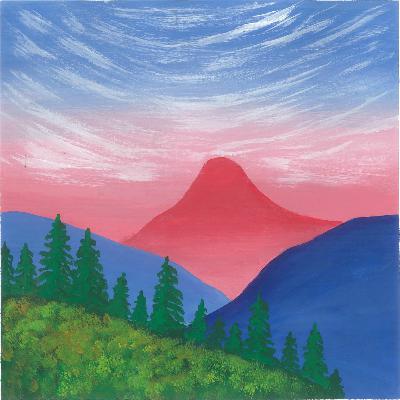Interview: Endless Fields pt. 1
Description
Earth.fm curator Melissa Pons was recently invited to attend Endless Fields 2025, as one of seven sound artists-in-residence at Portugal’s Estúdio Yucca, in the Algarve by the Ria Formosa lagoon.
This inaugural edition of Endless Fields, organized by Anna Clock and Stefano Arrigoni, was funded by the Department of Applied Social Sciences at the School of Science and Technology (FCT), NOVA University, Lisbon, Portugal, and co-organized by its participants. Local facilitation was by Raquel Castro - curator, producer, film director, and former president of the World Forum for Acoustic Ecology - and Ivo Louro, PhD Candidate in History, Philosophy and Heritage of Science and Technology (at FCT NOVA), and “occasional” sound artist.
During the residency, which involved collective listening and recording, sound performances, jams, and an open day, Melissa conducted interviews with her fellow participants. These conversations form the basis of a new two-part episode of Earth.fm’s Wind Is the Original Radio podcast.
This, the first part, features Ivo, Iddo Aharony, a composer of electronic and acoustic music and environmental and multimedia compositions, and Xavier Velastín Vicencio - self-described sound designer, composer, technologist, and whale lover.
Ivo Louro - who is studying the acoustemologies of Aeolian instruments, examining how they have been used not only to make music from the wind but also to monitor and forecast weather in both scientific and traditional craft settings - discusses:
- How his lifelong interest in environment, ecology, and science began in childhood, but that it was a university class on acoustic pollution, taken during his environmental engineering training, which opened a new world that linked sound and environment. Later, reading David Toop’s Haunted Weather: Music, Silence, and Memory prompted him to begin making field recordings and engaging with sound theory - starting with R. Murray Schafer’s The Soundscape: Our Sonic Environment and the Tuning of the World and, later, the work of ethnomusicologist Steven Feld, whose field research with the Kaluli people of Papua New Guinea’s Bosavi rainforest culminated in the 1991 album Voices of the Rainforest
- How his research accidentally led him to wind-driven Aeolian instruments. This includes resonators attached to the sails of traditional Portuguese windmills, which cause them to “hum and howl and [generate a] complex drone”, allowing millers to anticipate weather shifts while also producing a kind of music that accompanied their long, solitary hours. For Ivo, these sounds also resonate with personal memories and family histories, echoing rural soundscapes once common across the Portuguese hills
- Estúdio Yucca’s location being “almost like an oasis, [but also] very much just a tiny nook inside an area fraught with environmental issues and pressures”, citing the intensive farming and wastewater production associated with the touristification of the Algarve
- The connection between field recording and travel, and the environmental impacts of that travel, which has led Ivo to mainly make “field recording[s] around the city [...] [to] avoid going out into the country”
- How soundscape recordings can make “the world completely change” by engaging with unfamiliar species such as crabs: “put a small, sensitive microphone on the sand and [you’ll hear] a full world”.
Iddo Aharony is a creative musician and listener who continuously explores the myriad intersections of sound, environment, culture, and technology. His body of work spans a wide variety of instrumentations, media, and interdisciplinary collaborations, from a fully-staged opera to various experimental projects utilizing live electronics, created in collaboration with visual artists, theater directors, scientists, and other musicians. He currently lives in Colorado Springs and is Associate Professor of Music Technology at Colorado College.
He talks about:
- His interest in the way that sounds from our environment can be engaged with in unexpected ways, or how they can surprise listeners
- The way gradually moving from not really listening to what was around him, to an increased engagement with it, “felt like a door that kept opening more and more”
- How living in an economic structure that is built around attracting people's attention means that listening to whatever environment in which you find yourself is a wonderful way to be in the world without thinking in terms of functionality or productivity: a small, quiet act of rebellion against that attention economy
- His fascination with sound since childhood, when, while playing guitar and piano, music was Iddo’s “most private place”, where he was able to most fully be himself. And how music’s emotional resonances acted as a gateway to emotions that he couldn’t otherwise express - leading to the realisation that “the whole world has that potential [for] emotional resonance”.
Xavier Velastín Vicencio is a performance and sound artist whose practice spans live art, sound design and composition for theatre, sound installations, sound for video games, sound poetry, algorithmic composition, and digital instrument creation. His work often focuses on utterance, agency, the environment, technology, and the physicality of sound. Xavier is a resident of the Pervasive Media Studios, Bristol, and is currently on a research fellowship with the British Library's Eccles Institute, in London, England.
With Melissa, Xavier speaks about:
- How the ‘liveness’ and ‘presentness’ of the body and the voice “relate to [...] larger questions about bodily autonomy and agency”
- His obsession with whales and their songs, which began with his realization that the recordings we generally hear have either been edited to make them audible for us, chosen to fit our idea of how whale song ‘should’ sound (avoiding any sounds that are too uncomfortable or challenging), or overlaid with “plinky-plonky” New Age piano music. All of which led to his Edinburgh Festival Fringe show [whalesong]: “a sound play about the noises and voices in the sea [...] [and] a love song to cetaceans”, which was used whale song as an organizing structure
- His excitement about system design and how organic processes can be embodied within technological systems
- The pleasure of getting to spend time with other sound artists, as opposed to sound designers whose interests lean towards engineering and the results of sound design: “You know, I'm not that interested in plugins and equipment and [...] how many tracks your REAPER session has [...]; I'm interested in [...] effective moments.”
We hope that you enjoy this episode. If you’d like to connect with the participants, you can do so here: Iddo and Xavier.
And keep an ear out for part two - coming soon!
















